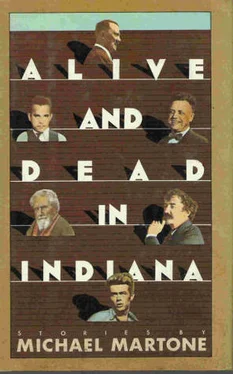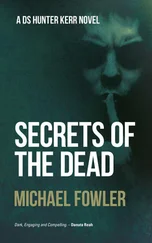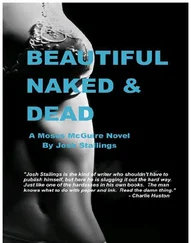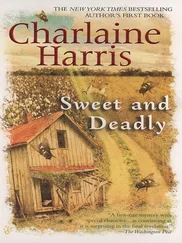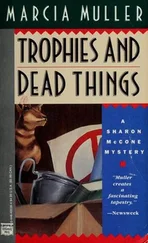Michael Martone - Alive and Dead in Indiana
Здесь есть возможность читать онлайн «Michael Martone - Alive and Dead in Indiana» весь текст электронной книги совершенно бесплатно (целиком полную версию без сокращений). В некоторых случаях можно слушать аудио, скачать через торрент в формате fb2 и присутствует краткое содержание. Год выпуска: 1984, ISBN: 1984, Издательство: Dzanc Books, Жанр: Современная проза, на английском языке. Описание произведения, (предисловие) а так же отзывы посетителей доступны на портале библиотеки ЛибКат.
- Название:Alive and Dead in Indiana
- Автор:
- Издательство:Dzanc Books
- Жанр:
- Год:1984
- ISBN:9781936873500
- Рейтинг книги:3 / 5. Голосов: 1
-
Избранное:Добавить в избранное
- Отзывы:
-
Ваша оценка:
- 60
- 1
- 2
- 3
- 4
- 5
Alive and Dead in Indiana: краткое содержание, описание и аннотация
Предлагаем к чтению аннотацию, описание, краткое содержание или предисловие (зависит от того, что написал сам автор книги «Alive and Dead in Indiana»). Если вы не нашли необходимую информацию о книге — напишите в комментариях, мы постараемся отыскать её.
Alive and Dead in Indiana — читать онлайн бесплатно полную книгу (весь текст) целиком
Ниже представлен текст книги, разбитый по страницам. Система сохранения места последней прочитанной страницы, позволяет с удобством читать онлайн бесплатно книгу «Alive and Dead in Indiana», без необходимости каждый раз заново искать на чём Вы остановились. Поставьте закладку, и сможете в любой момент перейти на страницу, на которой закончили чтение.
Интервал:
Закладка:
On weeknights I keep score for my dad’s softball team. I fill up the frames with little red diamonds. They’re winners. It’s fast pitch. They have uniforms and everything. When the ball gets by the catcher and no one’s on base, he throws it to the third baseman, who always plays in. The third baseman relays it back to the pitcher, a windmiller, his ball jumping over the plate. They’re sharp. I call out the lineups. On deck, in the hole.
They all ask about the fort and tell me how they mean to come by.
They work during the day, and on vacation they usually go away. I tell them there is plenty to see right here in town. But they know I am kidding.
I like the plinking sound of the aluminum bats. I like to see the white ball go bouncing beyond the lights out into the high grass of Hamilton Park, a grown man chasing after it like a kid.
I warm Dad up before the game, taking one step back after two throws. He’s always very deliberate, pretending to throw after he throws. He tells himself what he’s doing wrong. I can hear snatches of it. I’m all encouragements. When he’s not in the field but swinging the lead bat, I hold his glove to keep it off the ground, make sure there’s a ball inside to keep the pocket.
Dad takes some of us from the fort to the various parades and festivals where we’ve been appearing. We go all over this part of Indiana. Mom comes along to help with the maps and to look over the handicrafts. They won’t accept mileage. We’re all in the backseats of the station wagon in full-dress uniforms. Shakos, crossing white belts, bayonets in the scabbards. The muskets are up on the luggage rack. Mom always says, “I bet the wool is itchy.”
We don’t look very smart since our clothes are authentic and handmade. You’d expect more. But we do all right in the parades, staying in step and following orders. We fire off a salute at least once.
Dad works for Rea Magnet Wire and worries about the way the car smells. As long as I can remember, his cars have smelled of copper and the enamels. He even smells that way when I get close enough to him. It’s like something you were trying to melt in a pan, chocolate or butter, was just starting to burn instead.
He hangs little green paper Christmas trees from the rearview mirror, but they don’t do any good. Mom asks why draw attention to it by trying to cover it up. I don’t think the people from the fort notice — or if they do, they get used to it like we all do. They’re nervous about the parade and how they look.
All summer I have been thinking about my chemistry problem. I’ll be taking third-year chem in the fall. I’ve liked chem since the first class. It’s the teacher, I think, and because I have a knack for it. My senior year will be organic and a special project. I’ve known what I wanted to do for a long time, ever since Mr. Dvorak showed us the clock reaction in an early lecture.
A clock reaction is close to magic.
The stuff in the beaker changes colors all by itself.
It didn’t seem like science at all. That’s why it was great for beginning classes. He poured these three clear liquids into a beaker. The liquid turned a bright orange and seemed to thicken. He kept on stirring slowly with a glass rod, clinking it against the glass beaker. All of a sudden, the orange turned black. It was just like someone had flicked a switch. He told us that a professor at Princeton had designed the reaction, and that orange and black are the Princeton colors.
Since then, I’ve been thinking about my own clock reaction in white and red, North Side High colors. It has to be in that order since the white couldn’t cover the red.
I need to find three compounds, ABC. A and B can’t react. B and C can’t react. But A and C do react, and their product is a white solid. In that product somewhere there has to be something that will then combine with B, but not all at once.
I can’t have pink.
For two years I’ve been mixing precipitates — blue-green coppers, orange potassiums, cobalt blues, the yellows. The test tubes go from clear to color, and the solid settles instantly or suspends, milky and in motion.
Iron gives red, and there are many white metals.
Dvorak says there are tables and books that just list the colors. That would save me time, but I like to see them for myself — the colors and the grades of solids, sand or silt or crystal. There’s one, just a drop, that turns as it falls through the acid, a little gray worm by the time it hits the bottom.
Don’t worry — one day I’ll say, “See?”
White, red .
My mother thinks I think too much. She’s caught me staring into the sink, watching the Ajax oxidate and turn blue. She thinks I should go out more. My dad doesn’t say anything but worries out of habit. We’ll sit together out on the porch swing. I’ll be reading, and he’ll be smoking a cigar. “Boats this year,” he’ll say after a while. “Sailboats.”
He’s thinking about the Junior Achievement projects for next fall.
Rea gives copper wire to a JA company.
The kids make pictures of things by stringing the wire between carefully arranged pegs. Cars, trains, airplanes — all made out of thread-gauge copper wire, gold-headed tacks, black cloth for the background.
I am waving to the Kiwanis pontoon going by on the river. I can hear pieces of the talk about the beautification project, the downtown, the fort, the portage that made this spot worth fighting for in the first place. My two sisters are washing nearby, letting the crowd of visitors overhear them talk about the Major, our father, and finding him a wife, how that would make him more tolerable to live with. I go on back to the clearing in front of the gate where the rifle squad is drilling and the cannon is being readied for firing. The visitors shade their eyes, take pictures.
They’ve been blowing up buildings across the river downtown. It’s the easiest way to demolish the vacant old hotels. From here, we can see some of it. A building turns to dust and disappears from between the other buildings. If the wind is right, there is hardly any sound, just the cloud of dust rolling away. The Keenan Hotel. The Van Ormen. Once the gun crew tried to time a firing with one of the explosions. They aimed the cannon in the general direction so it would look like we were shelling the downtown, the building collapsing before our guns. Jim said it was a stupid idea. The visitors were more interested in the drill, swabbing out the barrel, ramming, loading, the slow-burning fuse. The visitors were from out of town anyway and probably didn’t know what was going on. The local people would be downtown to watch the building go.
The problem is that it is so hard to imagine this place without buildings even though so much of the old city is leveled now into fields of rubble. The view is broken only by the steeples of the old German churches.
It’s easy for me to pretend I’ve never tasted white sugar. Basketball hasn’t been invented. But I think I stick too close to the facts. Maybe I can’t see much beyond the things I can see.
My friend Les isn’t like that at all. He told me once of the project he’d like to do. Since energy is just matter traveling at the speed of light, he told me, what he’d like to come up with would be some kind of filter that would slow things down. Hold it up to the light and solid blocks of stuff would fall out of the air.
“That would be better than your clock reaction,” he says. “You might have to pick stuff up, but you wouldn’t have the mess afterwards.”
And Jim has no trouble at all being someone else. It is 1816 to him. “Listen,” he says, “what bird did that? One of the swallows from the blockhouse?”
He’s proud of the fort’s innovations — the cubiles for putting out fires, the overhanging ports to shoot down on intruders crouching by the walls. He’s proud that he’s convinced the banks to see it all like he saw it and that he convinced the city fathers to go along. There are signs all over town pointing in this direction. See Old Fort Wayne . For the longest time, all there was of the fort was one replica cannon in the lobby of the library, flanked by a glass case with a model made out of toothpicks and paper.
Читать дальшеИнтервал:
Закладка:
Похожие книги на «Alive and Dead in Indiana»
Представляем Вашему вниманию похожие книги на «Alive and Dead in Indiana» списком для выбора. Мы отобрали схожую по названию и смыслу литературу в надежде предоставить читателям больше вариантов отыскать новые, интересные, ещё непрочитанные произведения.
Обсуждение, отзывы о книге «Alive and Dead in Indiana» и просто собственные мнения читателей. Оставьте ваши комментарии, напишите, что Вы думаете о произведении, его смысле или главных героях. Укажите что конкретно понравилось, а что нет, и почему Вы так считаете.
